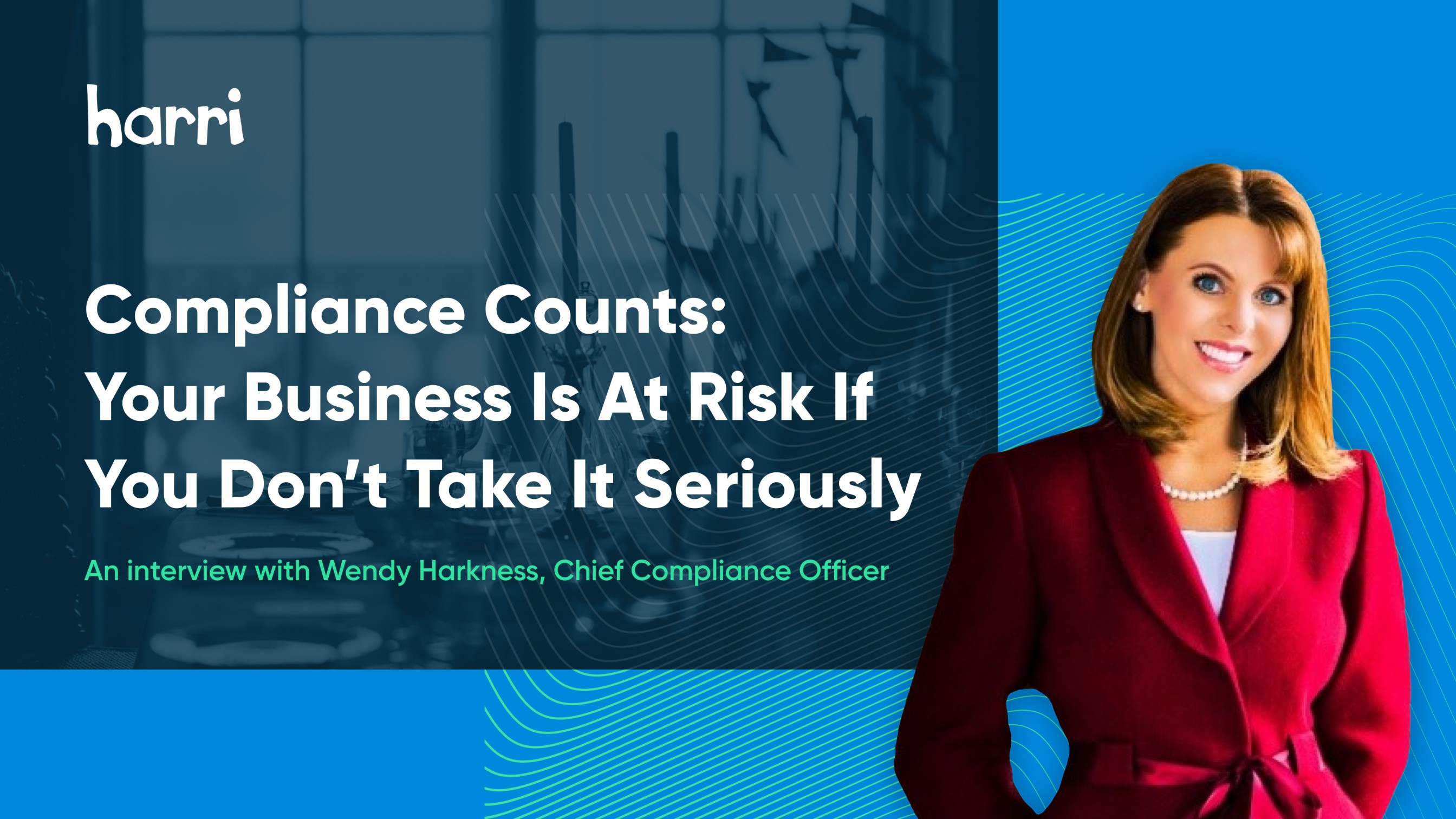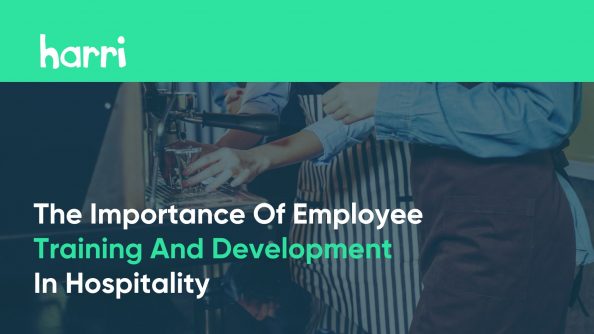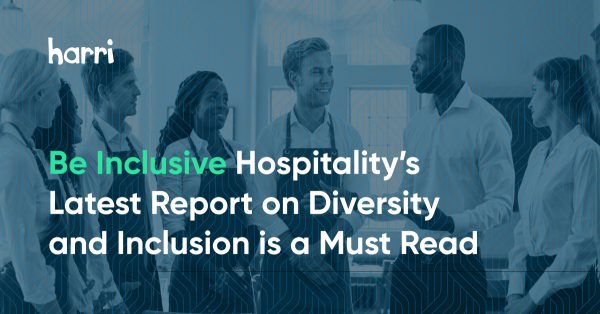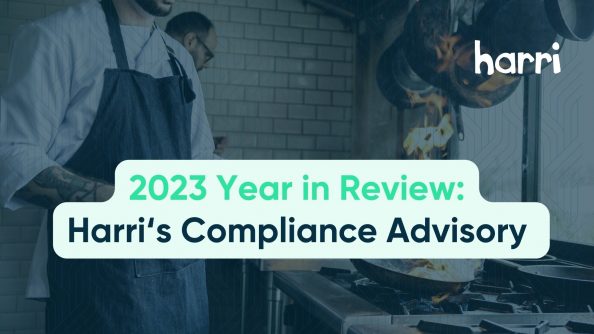Compliance Counts: Your Business is at Risk if you Don’t Take it Seriously

- By Harri Insider Team | November 2, 2022
Compliance Counts: Your Business is at Risk if you Don’t Take it Seriously
Compliance – the word might be yawn-inducing, but the consequences of not taking it seriously can be eye-watering.
Companies that fail to adhere to employment laws can end up facing fines running into tens of millions (be that dollars or pounds, the impact is the same), and the trickiest part of it all is that the regulations are in a constant state of flux.
In the U.S. in particular, the regulatory environment is growing more stringent, as more states adopt regulations like Fair Workweek standards which dictate schedule and hour restrictions to ensure people are not taken advantage of.
Harri’s focus on labor-related compliance is led by our dedicated Chief Compliance Officer Wendy Harkness, who brings a broad and deep experience across compliance, legal, the HR landscape.
We sat down with Wendy to find out what the burning issues are in compliance right now and how Harri helps customers cut through compliance complexity.
Harri Insider Team: Tell us a little bit about your background and what your role with Harri involves.
Wendy: I’ve worked primarily in the food service/hospitality industry for almost the whole of my career, with the last couple of decades as a Chief People Officer and Chief Legal Officer/General Counsel.
My team and I routinely analyze the ever-changing regulatory landscape to advise Harri’s Product and Development teams on pending, changing and new legislation, which is used to maintain and update our software. I talk to the product team 3-5 times a week, sometimes several times a day, to really make sure we’re ready for different things that are coming down the pipe.
HIT: Do you think that hospitality operators, in general, devote enough resources to compliance, and if not why do you think that is?
W: For an industry with incredibly slim margins before the pandemic, costs skyrocketed during and after Covid, along with mandatory compliance. Operators have less time, resources and budget for compliance today than they ever have, but the need for strict compliance is greater than ever, too. It is an extremely delicate balancing act for operators.
One thing I would add is that compliance does not fail in the boardroom – everybody in the boardroom fully understands compliance and why it’s so critical. Where it really fails is with general managers. I’ve been involved in many, many multi-million-dollar lawsuits throughout my history and it’s sad that these things [mistakes] happen on that frontline.
HIT: How crucial is it to ensure your business is compliant with workforce management laws?
W: Companies live or die by compliance because it can literally bankrupt you. For example, when you get down to a franchise model, which foodservice is filled with, franchisees absolutely cannot sustain a loss of $20m in fines. Aside from exorbitant fines, non-compliance can lead to agency investigations, reputational harm, loss of business licenses and even criminal charges in some cases.
HIT: What are customers’ biggest concerns right now when it comes to compliance – both in the US and the UK?
W: Some of the biggest concerns in both countries include the pace and scale of changing regulations, lack of ability to translate the complex, legislative requirements into compliance protocols that operators can follow, the cost, time and resources needed to keep frontline managers trained, and the exorbitant cost of failing to adhere to exacting regulations.
In the U.S., several states are doubling down on compliance requirements – expanding already difficult-to-comply-with regulations, increasing penalties for less-than-perfect compliance, and introducing sectoral bargaining like the FAST Act, which was recently passed in California.
In 2022 the UK has seen several compliance-related changes, including new requirements for gender, ethnicity and disability pay gap reporting, the move to a single enforcement body with increased powers, limitations on NDA (non-disclosure agreements) and the return to full right-to-work checks. 2023 will usher in even more changes like statutory maternity, paternity, shared parental and adoption pay, as well as parental bereavement and maternity pay.
HIT: How is Harri supporting customers on compliance?
W: Keeping up with new and changing legislation is a full-time endeavor and without dedicated compliance personnel, which few hospitality businesses have, managers are ill-equipped to decipher, train, track and enforce the myriad Federal, state and local requirements with which companies must comply.
Harri’s integrated compliance platform – which is continually being updated to reflect the dynamic world of compliance – is a game-changer. It’s no wonder scores of businesses trust Harri as their compliance partner.
HIT: What does the future of compliance look like?
W: With the right partner, the future of compliance is bright. Compliance can be a beast, but even a beast can be tamed. Compliance is no longer just for “big” companies – it is for all companies. With so many Federal, state and local regulations, compliance can surely be daunting but failing to comply is not an option and ignorance is not a defense. Exemplary compliance is obtainable. Harri can help.
Do you feel you’re facing compliance chaos? Wendy and the Harri team are here to help so you can reduce your risk and worry less. Learn more about our integrated compliance approach here.
Wendy recently spoke to the Wall Street Journal about the issues concerning compliance in New York City and how Harri is supporting our clients to ensure they stay compliant. Read the article here.





















